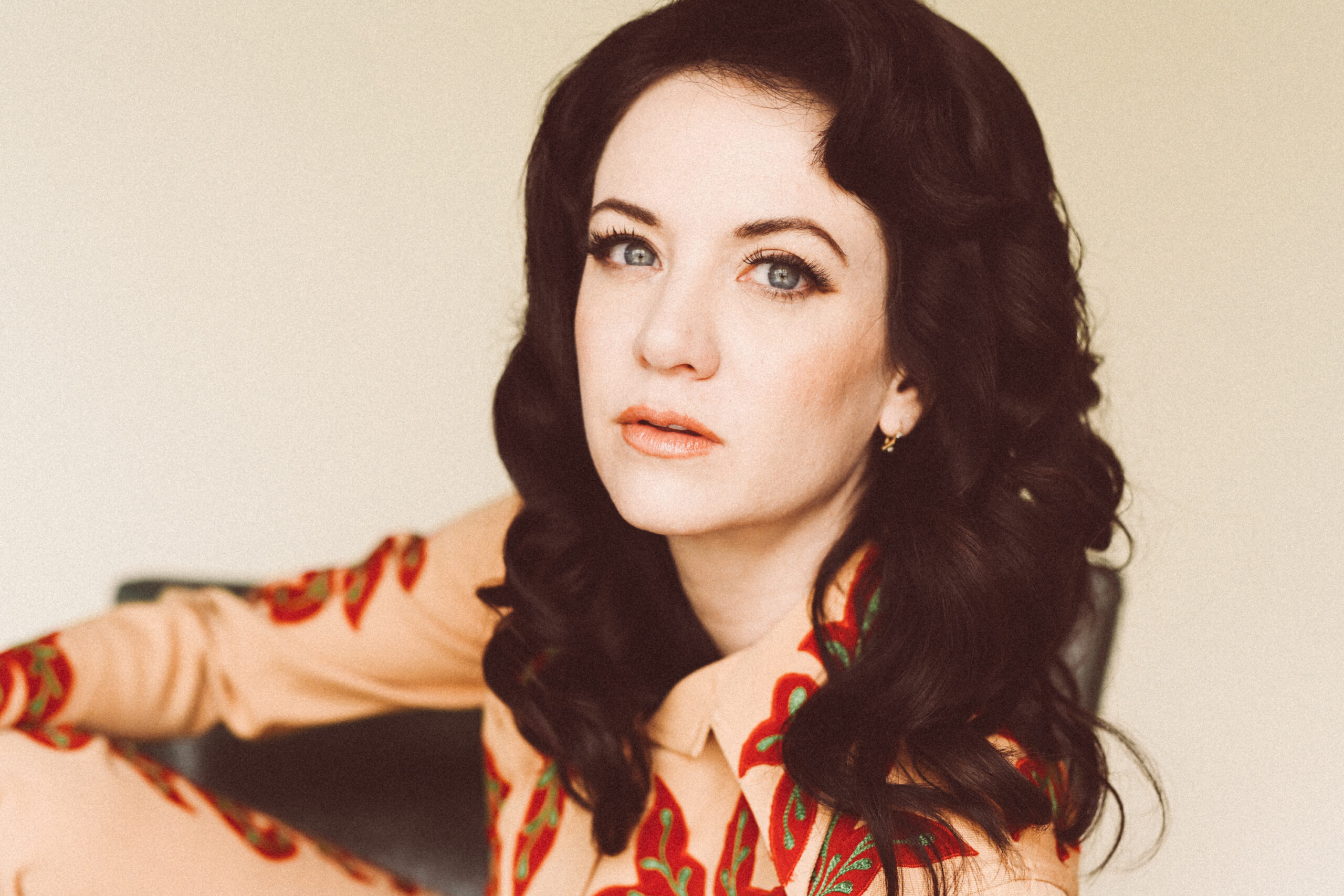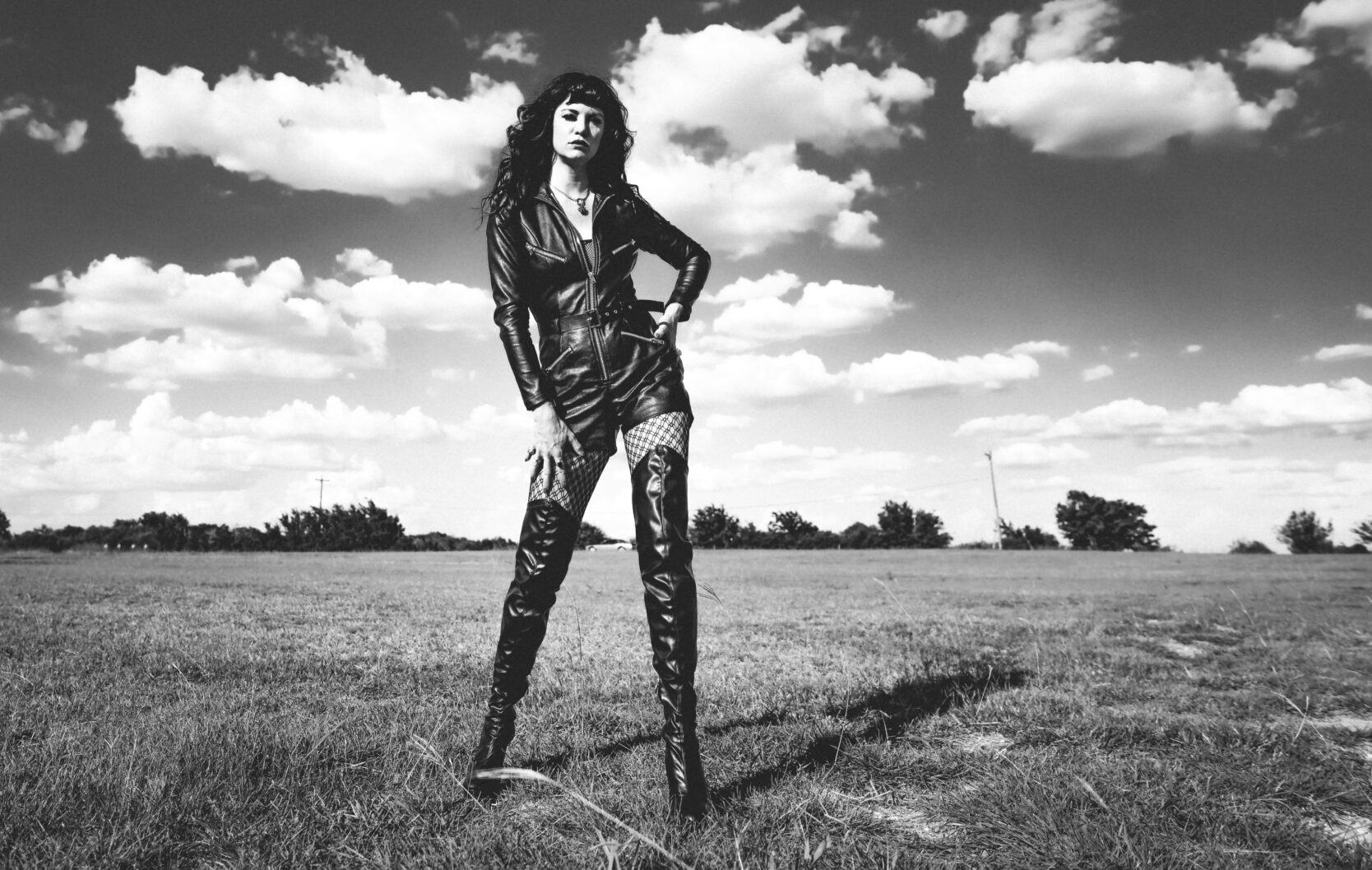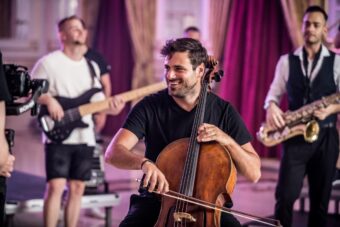Nikki Lane isn’t making music right at this very moment, but, technically, she is working. It’s afternoon in downtown Nashville and Lane is at the Hotel Indigo, a location of the chain that is being converted into a much cooler, more curated version of itself called “The Countrypolitan,” with Lane tapped to oversee the lobby store and sundries. Lane has camped out here for the day, in a Wonder Woman-goes-twang onesie covered in white stars, rolling joints, and eating lobster rolls while she admires the layout of some vintage jackets and gets her bearings. It’s a lot to take on right before the launch of her fourth album, Denim and Diamonds, but Lane doesn’t exactly think small: She also just booked her release party in New York City to be on, of all places, a boat scooting around the Hudson River.
“We just confirmed it yesterday,” the 38-year-old, who also runs a successful vintage shop in Nashville called High Class Hillbilly, says. “[My team] was like, ‘can you get 120 people to New York by next week?’ And I don’t care if I am by myself on this fucking boat. We are going to float around the Statue of Liberty and listen to the record. Because that’s the best thing about this job, just doing crazy and fun things that don’t seem normal.”
Since the release of her 2011 debut, Walk of Shame, Lane has helped shape and shepherd a new breed of insurgent country music in Nashville by following the things that don’t seem normal in favor of the crazy and fun. On Denim and Diamonds, that meant recruiting Queens of the Stone Age’s Josh Homme as producer, and making the record at his California studio with QOTSA bandmates as well as Matt Helders from the Arctic Monkeys. The result has the rock-country grit of Tanya Tucker and some harder-edged guitars while still keeping Lane’s signature sound fully intact. This time, though, she’s getting a lot more personal about her life, her origin story and her romantic foibles, a detour from what Lane described on stage at the Live on the Green Festival last month as “writing songs about being mad at people for the past ten years.”
From the triumphant opener “First High” to the confessional “Born Tough” and the note-to-self-and-everyone-else anthem of “Try Harder,” Lane mines her history in melodic gold. “I’ve always been honest,” the South Carolina-born Lane says, polishing off the first of two lobster rolls. “But I don’t know if I was telling the truth.”
We spoke to Lane about her new album, her unconventional production partnership and rides through Texas with Lana Del Rey.
SPIN: How did you pick Josh Homme as producer? It’s both unconventional and feels very natural.
Nikki Lane: I’m a fan of Queens, and my [manager] was like, “who’s gonna make your record?” And I said, “you know who is not going to make it: the five guys who make all the records in my genre.” I’ve already made records with all of them and I don’t want to stay boxed in. But I need someone to throw me a curveball. I felt burned out and thought that it sounded cool and fun. He kind of invited me into his world. It was out of the bounds of what we are comfortable with but on the other hand it made perfect sense. To some degree it’s more in line with what I listen to. When people call me a country artist, I feel like a poster. I like to growl to the music and I finally figured out how to get that. I want to make a record some day with Nathaniel Rateliff.
You made this album fresh out of lockdown, in the middle of what was already a break from actively recording (Lane’s previous LP, Highway Queen, came out in 2017). Did COVID isolation help you get into the headspace to turn a bit more inward?
For me, it created space because, like so many artists, we don’t know how to say no to anything. And then, suddenly, we had time. I was able to dig deeper into myself. Writing has always been therapy, but I think this record shows a lot of self-exploration that so many of us went through during that period. But I was also due for it. I kind of joked my way into this career: I wanted to be a country singer, I wrote a country record and then I was a country singer! And then you spend the rest of the time figuring out how to make that work. I know that I’m not for everyone, and that’s great. But the reason I feel like I can own that now is because of that space.
On your last record, Highway Queen, you were the woman who lived a wild life on the road, and you’ve always had a tough exterior: in fact, you sing about it on “Born Tough.” But the end of that song has a really telling kicker, with the lyric “I was born tough / and I’ve had enough.” Did it feel like high time to access that softer side?
I picked one of the toughest rock stars [Homme] in the world [to produce the record] and then we get in the room and realize we are both softies. A lot of times this type of career is about creating a shell around the fact that you are a sensitive human and you’re an empathetic human. I grew up in an environment where there was some domestic abuse and some stuff that was really hard, so I created a tough girl who can handle it. I didn’t mean to, but I turned inward and started going “OK, what made Nikki Lane? How did I become this outlandish person who doesn’t let rules apply?” So much of what I was experiencing before was just, “if you want to break up with me then, good, I will talk shit like Taylor Swift!” But there has to be more going on. I had to slow down and think about me.
Even with an unconventional producer in tow, this record sounds unapologetically Nikki Lane.
What makes me nervous about different or odd collaborations is what’s going to happen. But I think 12 years in, knowing whoever is in the band, it doesn’t matter, because it’s going to sound like me. The younger me was not a pushover but may have been quieter in a room because I didn’t know what I sounded like yet. And now I can hear other opinions, and decide if I respect them or not.
You came to Nashville over a decade ago, at a time when so much was happening musically, especially around artists we now consider “Americana.” Some have gone on to be huge stars, while others have disappeared from the radar. How do you reflect back on it all?
What I remember from that time was, who was supposed to be really famous? I wasn’t on that list, but I showed up in Nashville right when they were letting new girls in [laughs]. I think something I have struggled with was choosing career over family. And some people chose family over career. Some people can juggle it and some people can’t. And also the road – I think so many people want to write, but it doesn’t matter if they won’t get out there and work the damn job. To some degree, it’s like the last man standing. I’m working on a new song with Sierra [Ferrell] called “Long Haul.” It’s about realizing that endurance was key. But then you have someone like Karen Dalton or Townes Van Zandt, who just did their thing for so long and eventually we all wised up to it. And, sadly, with what we are experiencing with Luke Bell right now. I really wish he could have seen how much everybody loves him, though that might have made him uncomfortable.

Nashville has also grown exponentially since then, when you moved here, launched your career and opened your vintage spot High Class Hillbilly.
Well, whenever I am out of town and someone asks me where I am from and I say Nashville, I always have to differentiate that I am from East Nashville, which sounds like such a hipster ass thing to say. It’s just committing to this other side. And I do feel excited and youthful about things, and I like new restaurants coming to town. The only thing I have felt about the music scene is the older you get the more it can feel like high school. Ultimately it’s very supportive, but it’s not as much of a community as it was when I first moved. There’s no potluck dinner and it’s easy to forget that there’s a gem like Luke Bell down the street. I kind of want to open my own honkytonk here one day, because we are snuffing them all out with the growth. This is why you don’t see me bitching on the internet: I am a solutions-oriented person.
Your artist community now seems to extend well beyond Nashville, or just country music – Lana Del Rey, Sierra Ferrell in particular (Lane co-wrote Del Rey’s “Breaking Up Slowly” off Chemtrails Over the Country Club). What draws you to them?
The commonality is getting through this journey together. I’m just inspired by those people. And they are normal-ass girls. No super fan is ever going to believe that Lana is so normal, I almost don’t want you to know because I don’t want anyone to fuck with that. It’s amazing she can still have that sensibility and respect, and she can hop in a truck with me and drive to Texas. She wants to experience real, human life.
We’re here today next to the retail space you are building out at the hotel, and your vintage store is a huge part of who you are – a businessperson, and a musician. Do you ever have trouble balancing all those sides of yourself?
The store, to me, is a creative outlet. Being a micromanaging brat about merch is art also. I am outwardly expressing creatively all the time. Today I was in my yard staining things. I get up every day and I make something. I think that’s why it took five years to make a record: I’m tired a lot, I never go home. People always ask me why I have the [vintage store High Class Hillbilly] and make records, and I’ve always had to do both. Because if you didn’t like my record, you might have hurt my feelings. But if you didn’t like my t-shirt, you were wrong.





